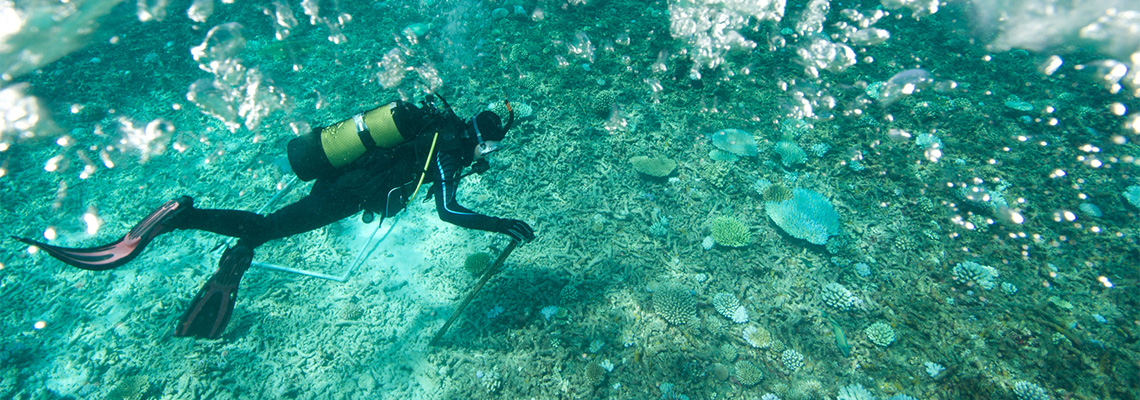To become a marine biologist, you need to complete a bachelor’s degree in marine biology or a related field. Marine biology is a fascinating field that involves the study of marine organisms and their ecosystems.
If you have a deep passion for the ocean and its inhabitants, becoming a marine biologist may be the right career choice for you. However, the road to becoming a marine biologist requires certain educational steps. In order to pursue a career in this field, aspiring marine biologists must complete a four-year bachelor’s degree in marine biology or a related discipline.
This educational foundation provides a solid understanding of the fundamental concepts and principles necessary to study marine life. By obtaining a bachelor’s degree, you will gain the necessary skills and knowledge to explore the complex world of marine biology and make valuable contributions to the field.
Pursuing A Bachelor’s Degree In Marine Biology
In order to become a marine biologist, several educational steps are necessary. One of the first steps is to pursue a Bachelor’s degree in Marine Biology. This can be done by researching reputable universities and colleges that offer programs in this field. It is important to choose a program with a strong marine biology curriculum, as this will provide the necessary foundation for a career in this field.
Once a program has been chosen, it is important to meet the admission requirements for the program. This may include submitting an application, providing transcripts, and meeting any specific GPA requirements. In addition, enrolling in relevant prerequisite courses, such as biology and chemistry, is often necessary.
Gaining hands-on experience is also crucial in becoming a marine biologist. This can be done through internships or fieldwork opportunities. These experiences allow students to apply their knowledge in real-world settings and gain practical skills that are essential in this field.
Specializing With A Master’s Degree In Marine Biology
Specializing with a Master’s Degree in Marine Biology is an essential step for pursuing a career as a marine biologist. This specialization allows individuals to identify areas of interest within marine biology, enabling them to focus their research and expertise. Researching graduate programs that offer specialized tracks is crucial in finding the most suitable program for their interests and career goals.
Meeting the admission requirements for the chosen program is the next important step. This may involve securing letters of recommendation, submitting transcripts, and fulfilling any prerequisite coursework. Once admitted, students will need to complete coursework and conduct research within their chosen specialty.
Collaboration with faculty members and mentors in the field is integral to success in this field. Establishing strong relationships can open doors for internships, research opportunities, and industry connections that can further enhance their knowledge and experience. With dedication and hard work, specializing with a Master’s Degree in Marine Biology sets individuals on the path to becoming successful marine biologists.
Advancing With A Ph.d. In Marine Biology
Identifying research interests and potential advisors is the first crucial step towards pursuing a Ph.D. in Marine Biology. Take the time to research Ph.D. programs that offer strong opportunities in your area of interest and align with your career goals. Look for renowned faculty members who specialize in your research area, as they will be invaluable mentors throughout your journey.
Once you have identified potential programs, make sure you meet their admission requirements. These may include holding a relevant bachelor’s and master’s degree, or prerequisites specific to marine biology. Take the time to gather all necessary documentation, such as transcripts, recommendation letters, and a statement of purpose that highlights your research interests and motivations.
While pursuing your Ph.D., one of the most important aspects is conducting independent research and publishing your findings. This demonstrates your ability to contribute to the field and can pave the way for future opportunities. Collaborate with your advisor and peers, utilize state-of-the-art research facilities, and dedicate yourself to the advancement of marine biology knowledge.
To gain recognition within the scientific community, it is essential to present your research at conferences and seminars. Sharing your findings and insights with fellow researchers and experts opens doors for collaboration and grants you exposure to new ideas and perspectives. These events also provide valuable networking opportunities, allowing you to establish connections that can further accelerate your career.

Credit: www.geteducated.com
Continual Learning And Professional Development
html
Continual learning and professional development are crucial steps to becoming a successful marine biologist. Attending workshops, seminars, and conferences in the field allows individuals to stay updated with the latest research and technological advancements. This exposure helps in gaining knowledge about new methodologies and techniques used in the marine biology industry. Moreover, joining professional organizations and networking with industry experts provides opportunities for collaboration and interdisciplinary work. Building a diverse skill set through relevant workshops and courses is also essential. These enhance expertise in areas such as data analysis, fieldwork techniques, and conservation strategies. By exploring opportunities for collaboration and interdisciplinary work, marine biologists can contribute to the larger scientific community and make significant contributions to the field. Striving for continuous learning and professional development ensures marine biologists stay at the forefront of their field, advancing their careers and making meaningful scientific contributions.
Conclusion
Pursuing a career as a marine biologist requires a series of educational steps that provide a strong foundation in the field. From obtaining a bachelor’s degree in marine biology or a related discipline to gaining hands-on experience through internships and research opportunities, each stage is crucial in developing the necessary skills and knowledge.
Additionally, pursuing advanced degrees, such as a master’s or Ph. D. , can significantly enhance career prospects and allow for specialized areas of study. Ultimately, dedication, passion, and a commitment to ongoing learning are key to succeeding in this rewarding field.






